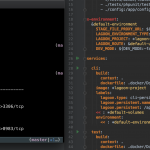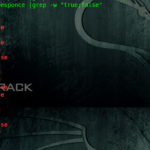GovCMS is a hosting platform dedicated to providing efficient, cost-effective solutions to power digital experiences of government agencies. GovCMS boasts state-of-the-art technologies, looking towards the future in its use of innovative hosting options such as Lagoon and Kubernetes. By deploying GovCMS with this next-generation technology, government agencies can benefit from a high performance, secure platform to operate their website and save money on infrastructure costs. Kubernetes in GovCMS hosting provides the cutting-edge scalability, stability and redundancy necessary for reliable operation and near instant response times—helping government agencies take advantage of the opportunities that GovCMS brings for modernity and cost savings.
Continue readingCategory Archives: Drupal
Drupal ClamAV module vs maldet to eliminate malware in uploaded files
A maldet binary, combined with the ClamAV package, offers a powerful anti-malware server protection solution. It offers a serious level of malware protection in your server or containers cluster deployment.
In this article I give an overview and comparison of using a Drupal ClamAV module, that scans uploaded files, with a server-level malware scanning using Linux Malware Detect and ClamAV
Continue readingHow to prevent username enumeration vulnerability in Drupal
These days everyone is trying to pay attention to website security. Great effort. But as you hopefully know, the real security is the security at every level. Let’s review the very generic and common security feature, such as the username and password pair to secure login forms in millions of web applications. In the perfect scenario you would create a very unique and hard to guess username along with strong password (if your username is admin, bad luck!). In this case, whenever someone will be attempting a dictionary attack against your website, not only passwords needs to be discovered but usernames too. This makes the username/password security alone the strongest. In such scenario leaked username makes it only 50% success of a website breach (with password to be the remaining 50%) and gives your login form maximum protection possible. What is Username Enumeration Vulnerability Username enumeration is a type of vulnerability in web applications, where it is possible to find exact usernames or to confirm that a guessed (or leaked) username exists in the system based on system response. For example the password reset form may return different response based on the fact that the username exists in the system versus the opposite. […]
Continue reading

